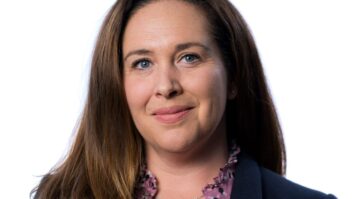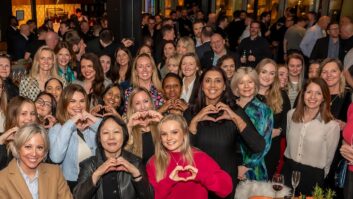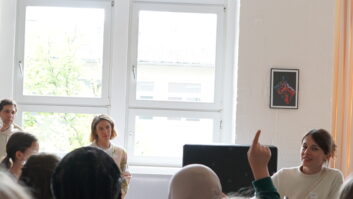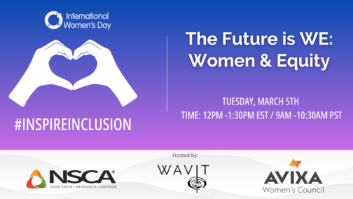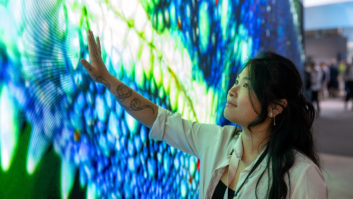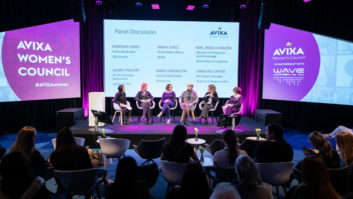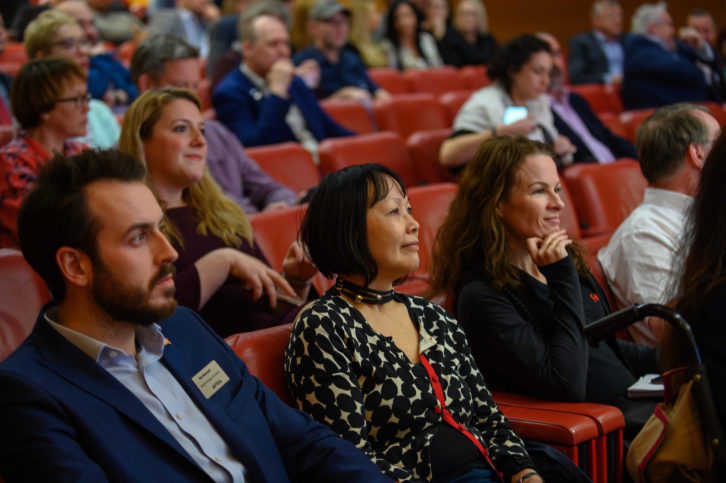
Do you think the growing awareness of diversity and inclusion in AV is a direct result of discussions being had by people within the industry or as a consequence of the wider debate around these issues?
I think the discussion is inevitably part of the wider rise in awareness within society; however, because of the marked disparity in diversity within the AV industry it has hit a chord with many people and there is a swell of momentum from all sides of the AV community. The AVIXA Diversity Council is playing its part by organising events, educational seminars and creating a focus at major industry shows such as InfoComm and ISE. Council members cover all areas of diversity, beyond gender and ethnicity, to include other under-represented groups such as those with a disability, LGBT, age, socio-economic, autism and more.
To what extent do you think people in AV and beyond are aware of the benefits diversity brings?
I don’t think there is any argument over the legal and moral reasons behind creating opportunities for all people who represent the wider society we live in. The financial benefits and positive effect on productivity and creativity may well be less known. A recent Boston Consulting Group study revealed tech companies that reported above-average diversity on their management teams also reported innovation revenue that was 19 percentage points higher than that of companies with below-average leadership diversity.
Companies can only benefit from creating a workforce that reflects their customer demographic, it means that they are in an ideal position to deliver diverse solutions that may never come from a non-diverse team suffering with groupthink.
“Companies can only benefit from creating a workforce that reflects their customer demographic”
What recent changes have you noticed around diversity and inclusion in AV?
Groups such as Women in AV and AVIXA Women have gained a lot more traction recently despite being around for several years. At InfoComm the AVIXA Women’s breakfast had an attendance over 400 and a recent Women in AV event in central London well over 50. The atmosphere and feedback has been a lot more positive and constructive. There has been very vocal support for more diverse panels at industry conferences in recent times and many all-white male panels at events are now being called out and challenged.
Are there industries that AV can learn from and use to roadmap its own initiatives?
I think many industries are way ahead of AV and the business world is full of examples. Many AV end users will work for large corporations that have had D & I initiatives in place for many years. Within our industry I’d like to single out Shure as setting a fine example. Not only do they have a female CEO in Christine Schyvinck (who follows in the footsteps of Rose Shure and gave an inspirational keynote at the InfoComm AVIXA Women’s breakfast) but they have multiple programmes for outreach even to schools, to spread the word about our fantastic industry to a diverse next-generation workforce.
What do you think is more of a barrier to diversity and inclusivity in AV – reluctance/ignorance from within or external factors, such as a lack of qualified candidates for positions or a lack of awareness of the industry as a potential career path?
From a personal point of view I know that a traditional job advert for an AV technician requiring experience will elicit very few, if any female candidates. Somewhere between school and graduation the potential candidates are disappearing from the supply chain into AV. The challenge is to reach out further back than graduates and attract younger students to the AV industry from college and schools. Our industry needs to vigorously market itself to become an attractive option for those looking for a career in technology. Outreach programmes such as AVMI’s ex-forces veteran’s initiative are another way of bringing new talent into AV.
One push back is from a sector of white males who see it as an attack on them and have an opinion that anyone who tries hard enough will succeed in the AV industry, and this has been vocalised in one or two blogs and articles particularly in the US. This is a mindset that needs to change because it doesn’t take into account so many factors that prevent individuals from under-represented groups from ever getting near to an opportunity within the AV industry.
At what point did you first start to consider the level of diversity within your own team?
It just hit me about eight years ago, I looked at our team and realised although we had very different personalities and fit together well, we were basically a narrow homogenous group of all white males. I solved the problem by creating a trainee position that didn’t require any previous experience. It was a different marketplace at the time but we had over 300 applications with 40% women and many non-UK applicants. We eventually employed a woman and she has been promoted twice and is an incredibly valuable member of our team who we would have missed out on through the traditional advert route.
How much of a challenge is it to build a diverse and inclusive team when the AV talent pool is considerably smaller than many other tech industries?
Apart from trainee roles, we have also welcomed interest from within our organisation from other departments. Others have seen how exciting it is to be in an award-winning AV team and have asked if there are opportunities to join. One benefit of AVIXA membership is that anyone in the member organisation can have access to the free online training and certification. We have watched three individuals who previously worked in the kitchen or reception grow within our team and establish full-time roles in the AV industry.
Have you got any general or specific goals around diversity and inclusion for your team and for the AV industry as a whole?
I have organised two AVIXA Diversity Council events previously this year with another two planned, these are about raising awareness and formulating a plan of action. My goal is to see some of this action realised and to help bring about a change in the industry. In the meantime I continue to connect people and spread the word and watch and support as others are leading their own initiatives and making change happen. I have been joined by Graeme Massey of JacobsMassey and Jennie Stephens from Shure on a UK sub-committee of the AVIXA diversity council and we are also looking for more AVIXA members to sign up and join us as volunteers to promote the councils work.
Tell me about the next diversity and inclusivity event you’re hosting.
There are two events that I am organising: firstly 9th October in central London, an evening of storytelling from those with positive and inspirational experiences from under-represented groups and also from those involved in initiatives to change the demographic of the AV industry.
On 11th February at ISE on the main stage we have a fabulous event on how to create change, focussing on changing your mind, creating a welcoming environment, outreach and positive action to create more diversity and inclusion in AV.
The keynote speaker and panel moderator will be June Sarpong, and the panel will include Chris Hope from Loop Lab and Nina Dunn a video/lighting artist.
The October event already has over 80 registrations, it’s free to attend and is listed on Eventbrite, it’s going to be a lively and engaging night of storytelling and networking.
Installation and AV Technology Europe are proud to sponsor the next AVIXA Diversity Council event, which is being held in London on 9th October click here to register
